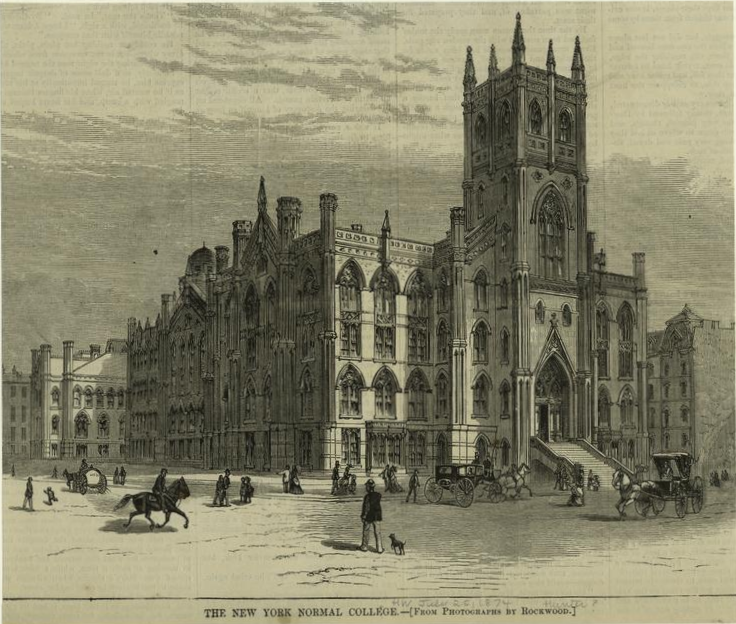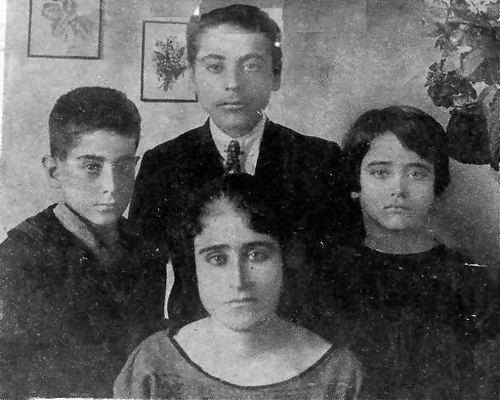|
Majida El Roumi
Majida El Roumi Baradhy ( ar, ماجدة الرومي برادعي; born 13 December 1956) is a Lebanese soprano singer and United Nations Goodwill Ambassador. Early life Majida El Roumi Al Baradhy was born on 13 December 1956 in Kfarshima. He father, Halim El Roumi, was from a Melkite Christian family from Tyre, South Lebanon, and her mother was Egyptian. Her father was born in Tyre in 1919 but later moved to Haifa, Palestine at the age of two with his whole family to avoid the hardships of World War I. Kfarshima is also home to many Lebanese singers, musicians and poets like Philimon Wehbe, Melhem Barakat and Issam Rajji. The El Roumi residence was a meeting place for many cultural figures as he worked with many singers. He is accredited with having discovered many well-known artists, mainly the Lebanese star Fairuz. Majida was featured in her school's stage in Saint Coeur, Al Hadath. At the age of 14, she accompanied her father in an interview on Télé Liban with Naji ... [...More Info...] [...Related Items...] OR: [Wikipedia] [Google] [Baidu] |
Arabic Music
Arabic music or Arab music ( ar, الموسيقى العربية, al-mūsīqā al-ʿArabīyyah) is the music of the Arab world with all its diverse music styles and genres. Arabic countries have many rich and varied styles of music and also many linguistic dialects, with each country and region having their own traditional music. Arabic music has a long history of interaction with many other regional musical styles and genres. It represents the music of all the peoples that make up the Arab world today, all the 22 states. History Pre-Islamic period (Arabian Peninsula) Pre-Islamic Arabia was the cradle of many intellectual achievements, including music, musical theory and the development of musical instruments. In Yemen, the main center of pre-Islamic Arab sciences, literature and arts, musicians benefited from the patronage of the Kings of Sabaʾ who encouraged the development of music. [...More Info...] [...Related Items...] OR: [Wikipedia] [Google] [Baidu] |
Fairuz
Nouhad Wadie' Haddad ( ar, نهاد وديع حداد, ; born November 21, 1934), known as Fairuz ( ar, فيروز, ; also spelled Fairouz, Feyrouz or Fayrouz), is a Lebanese singer. She is considered by many as one of the leading vocalists and most famous singers in the history of the Arab world. Fairuz is considered the musical icon of Lebanon and is popularly known as "the soul of Lebanon". Fairuz began her musical career as a teenager at the national radio station in Lebanon in the late 1940s as a chorus member. Her first major hit, "Itab", was released in 1952 and made her an instant star in the Arab world. In the summer of 1957, Fairuz held her first live performance at the Baalbeck International Festival where she was awarded with the honor of "Cavalier", the highest medal for artistic achievement by Lebanese president Camille Chamoun. Fairuz's fame spread throughout the Arab world in the 1950s and 1960s, leading her to perform outside of Lebanon in various Arab capi ... [...More Info...] [...Related Items...] OR: [Wikipedia] [Google] [Baidu] |
Gibran Khalil Gibran
Gibran Khalil Gibran ( ar, جُبْرَان خَلِيل جُبْرَان, , , or , ; January 6, 1883 – April 10, 1931), usually referred to in English as Kahlil Gibran (pronounced ), was a Lebanese-American writer, poet and visual artist, also considered a philosopher although he himself rejected the title. He is best known as the author of '' The Prophet'', which was first published in the United States in 1923 and has since become one of the best-selling books of all time, having been translated into more than 100 languages. Born in a village of the Ottoman-ruled Mount Lebanon Mutasarrifate to a Maronite family, the young Gibran immigrated with his mother and siblings to the United States in 1895. As his mother worked as a seamstress, he was enrolled at a school in Boston, where his creative abilities were quickly noticed by a teacher who presented him to photographer and publisher F. Holland Day. Gibran was sent back to his native land by his family at the age of ... [...More Info...] [...Related Items...] OR: [Wikipedia] [Google] [Baidu] |
Hunter College
Hunter College is a public university in New York City. It is one of the constituent colleges of the City University of New York and offers studies in more than one hundred undergraduate and postgraduate fields across five schools. It also administers Hunter College High School and Hunter College Elementary School. Hunter was founded in 1870 as a women's college; it first admitted male freshmen in 1946. The main campus has been located on Park Avenue since 1873. In 1943, Eleanor Roosevelt dedicated Franklin Delano Roosevelt's and her former townhouse to the college; the building was reopened in 2010 as the Roosevelt House Public Policy Institute at Hunter College. The institution has an 57% undergraduate graduation rate within six years. History Founding Hunter College has its origins in the 19th-century movement for normal school training which swept across the United States. Hunter descends from the Female Normal and High School (later renamed the Normal College of the C ... [...More Info...] [...Related Items...] OR: [Wikipedia] [Google] [Baidu] |
Youssef Chahine
Youssef Chahine ( ar, يوسف شاهين, Yūsuf Shāhīn ; 25 January 1926 – 27 July 2008) was an Egyptians, Egyptian film director. He was active in the Cinema of Egypt, Egyptian film industry from 1950 until his death. He directed twelve films that were listed in the Top 100 Egyptian films list. A winner of the Cannes 50th Anniversary Award (for lifetime achievement), Chahine was credited with launching the career of actor Omar Sharif. A well-regarded director with critics, he was often present at film festivals during the earlier decades of his work. Chahine gained his largest international audience as one of the co-directors of ''11'9"01 September 11'' (2002). Childhood and early life Chahine (Fr. pronounced Shaheen) was born in Alexandria, Egypt to a Melkite Greek Catholic Church, Melkite Greek Catholic family. His father was an attorney originally from Zahle, Lebanon and was a supporter of the Egyptian nationalism, Egyptian nationalist Wafd Party. His mother, Claire ... [...More Info...] [...Related Items...] OR: [Wikipedia] [Google] [Baidu] |
Egyptians
Egyptians ( arz, المَصرِيُون, translit=al-Maṣriyyūn, ; arz, المَصرِيِين, translit=al-Maṣriyyīn, ; cop, ⲣⲉⲙⲛ̀ⲭⲏⲙⲓ, remenkhēmi) are an ethnic group native to the Nile, Nile Valley in Egypt. Egyptian identity is closely tied to Geography of Egypt, geography. The population is concentrated in the Nile Valley, a small strip of cultivable land stretching from the Cataracts of the Nile, First Cataract to the Mediterranean Basin, Mediterranean and enclosed by desert both to the Eastern Desert, east and to the Western Desert (North Africa), west. This unique geography has been the basis of the DNA history of Egypt, development of Egyptian society since Ancient Egypt, antiquity. The daily language of the Egyptians is a continuum of the local variety of Arabic, varieties of Arabic; the most famous dialect is known as Egyptian Arabic or ''Masri''. Additionally, a sizable minority of Egyptians living in Upper Egypt speak Sa'idi Arabic, a mix bet ... [...More Info...] [...Related Items...] OR: [Wikipedia] [Google] [Baidu] |
Lebanese Civil War
The Lebanese Civil War ( ar, الحرب الأهلية اللبنانية, translit=Al-Ḥarb al-Ahliyyah al-Libnāniyyah) was a multifaceted armed conflict that took place from 1975 to 1990. It resulted in an estimated 120,000 fatalities and an exodus of almost one million people from Lebanon. The diversity of the Lebanese population played a notable role in the lead-up to and during the conflict: Sunni Muslims and Christians comprised the majority in the coastal cities; Shia Muslims were primarily based in the south and the Beqaa Valley in the east; and Druze and Christians populated the country's mountainous areas. The Lebanese government had been run under the significant influence of elites within the Maronite Christian community. The link between politics and religion had been reinforced under the French Mandate from 1920 to 1943, and the country's parliamentary structure favoured a leading position for its Christian-majority population. However, the country had a ... [...More Info...] [...Related Items...] OR: [Wikipedia] [Google] [Baidu] |
Elias Rahbani
Elias Hanna Al Rahbani ( ar, إلياس حنا الرحباني; 26 June 1938 – 4 January 2021) was a Lebanese musician, composer, songwriter, orchestra conductor, and reality television personality, sitting as judge on a number of talent shows. He composed more than 2,500 songs, including 2,000 in Arabic.Acharq Awsat: الياس الرحباني: سحره صوت البيانو فاعتقد أنه من عناصر الطبيعة He wrote the soundtrack for more than 25 films, a number of TV series, and also composed musical scores for the piano. He composed songs for a number of artists, including |
Arabic Literature
Arabic literature ( ar, الأدب العربي / ALA-LC: ''al-Adab al-‘Arabī'') is the writing, both as prose and poetry, produced by writers in the Arabic language. The Arabic word used for literature is '' Adab'', which is derived from a meaning of etiquette, and which implies politeness, culture and enrichment. Arabic literature emerged in the 5th century with only fragments of the written language appearing before then. The Qur'an, widely regarded as the finest piece of literature in the Arabic language, would have the greatest lasting effect on Arab culture and its literature. Arabic literature flourished during the Islamic Golden Age, but has remained vibrant to the present day, with poets and prose-writers across the Arab world, as well as in the Arab diaspora, achieving increasing success. History ''Jahili'' is the literature of the pre-Islamic period referred to as ''al-Jahiliyyah'', or "the time of ignorance". In pre-Islamic Arabia, markets such ... [...More Info...] [...Related Items...] OR: [Wikipedia] [Google] [Baidu] |
Lebanese University
The Lebanese University (LU) (, ) is the only public university in Beirut, Lebanon. It is ranked #701–750 worldwide in terms of education. The creation of the Lebanese University was an idea first mentioned in the speech of the former Minister of Foreign Affairs, Mr Hamid Frangieh, during the closing ceremony of the Third UNESCO Conference in Beirut held on 11 December 1948, during which he said: "Lebanon hopes to see the creation of a Lebanese university having the spirit of UNESCO." University presidents Since its inception, the Lebanese University has been headed by: and it is headed by Dr. Bassam Badran since 2021. Faculties and campuses The university issued successive decrees since its inception, establishing faculties and institutes, which contributed to its expansion and development until reaching 16 faculties: In addition to three Doctoral Schools: The university is also affiliated with thInstitute of Applied Sciences and Economics(CNAM-ISAE), which operates ... [...More Info...] [...Related Items...] OR: [Wikipedia] [Google] [Baidu] |
Asmahan
Amal al-Atrash ( ar, آمال الأطرش ', North Levantine ; November 25, 1918 – July 14, 1944),"منزل الفنانة أسمهان بات متحفاً" , ''Al-Mada'' better known by her stage name Asmahan (, '), was a Syrian singer. Having immigrated to Egypt at the age of three years old, her family knew the composer Dawood Hosni, and she sang the compositions of and |








